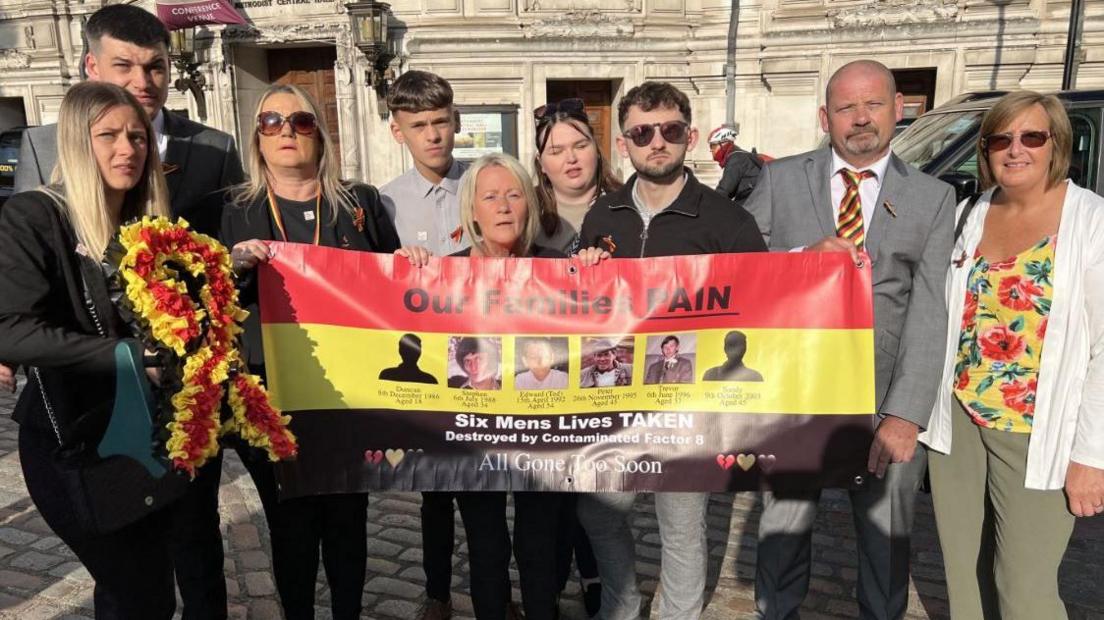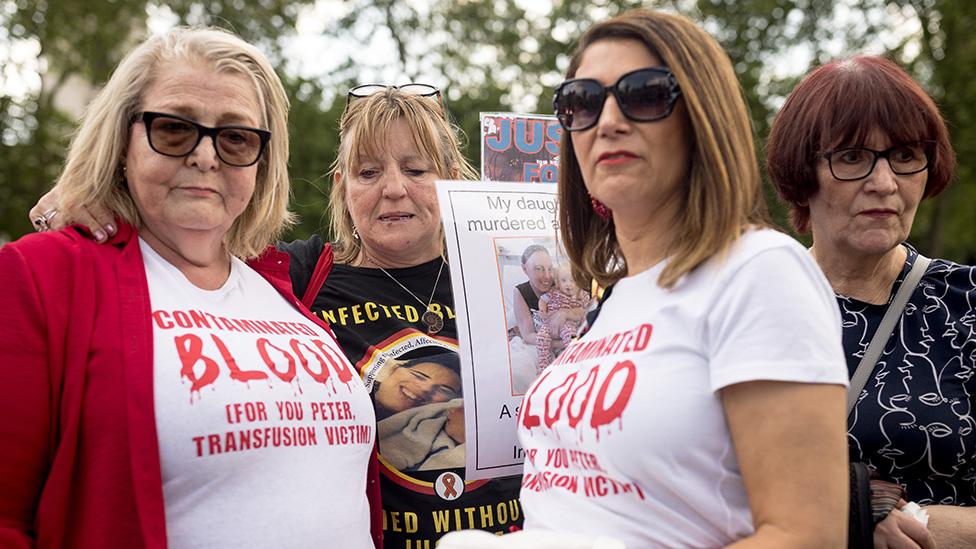Infected blood family 'angry' after payout delay
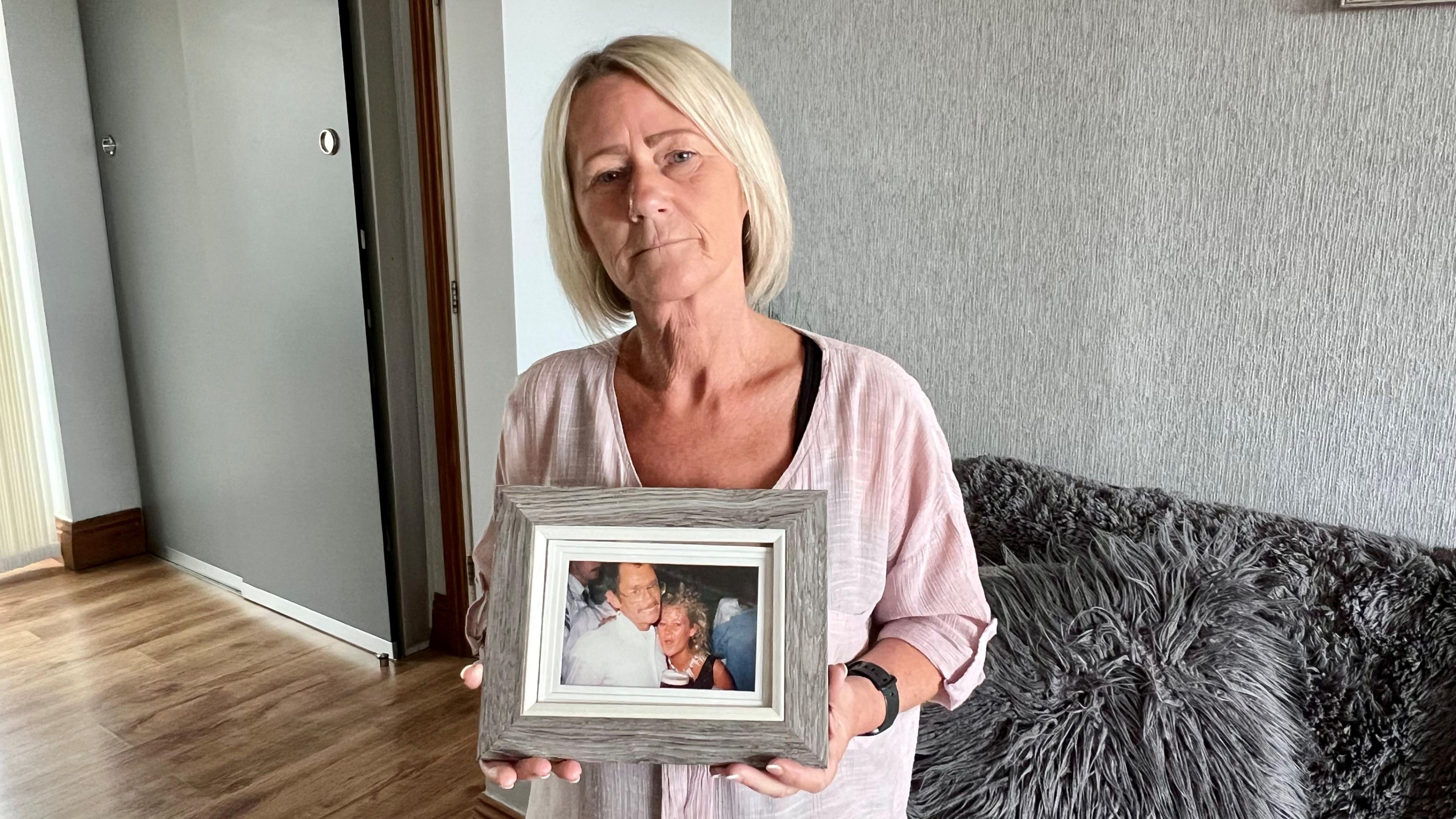
Eileen Burkert said compensation was an important part of justice for her dad
- Published
A woman whose father was infected with HIV and hepatitis C by contaminated blood products used to treat haemophilia has said she has been left "angry" and "frustrated" by compensation delays.
Ted Burkert, a single father of five from Bradford, died in 1992 shortly after suffering a brain bleed.
His daughter, Eileen Burkert, made her comments ahead of a two-day hearing of the Infected Blood Inquiry, which has been reconvened to consider the "timeliness and adequacy" of the government response.
The Infected Blood Compensation Authority (IBCA), which was set up by the government to administer payments, said its priority remained "paying as many people as soon as possible".
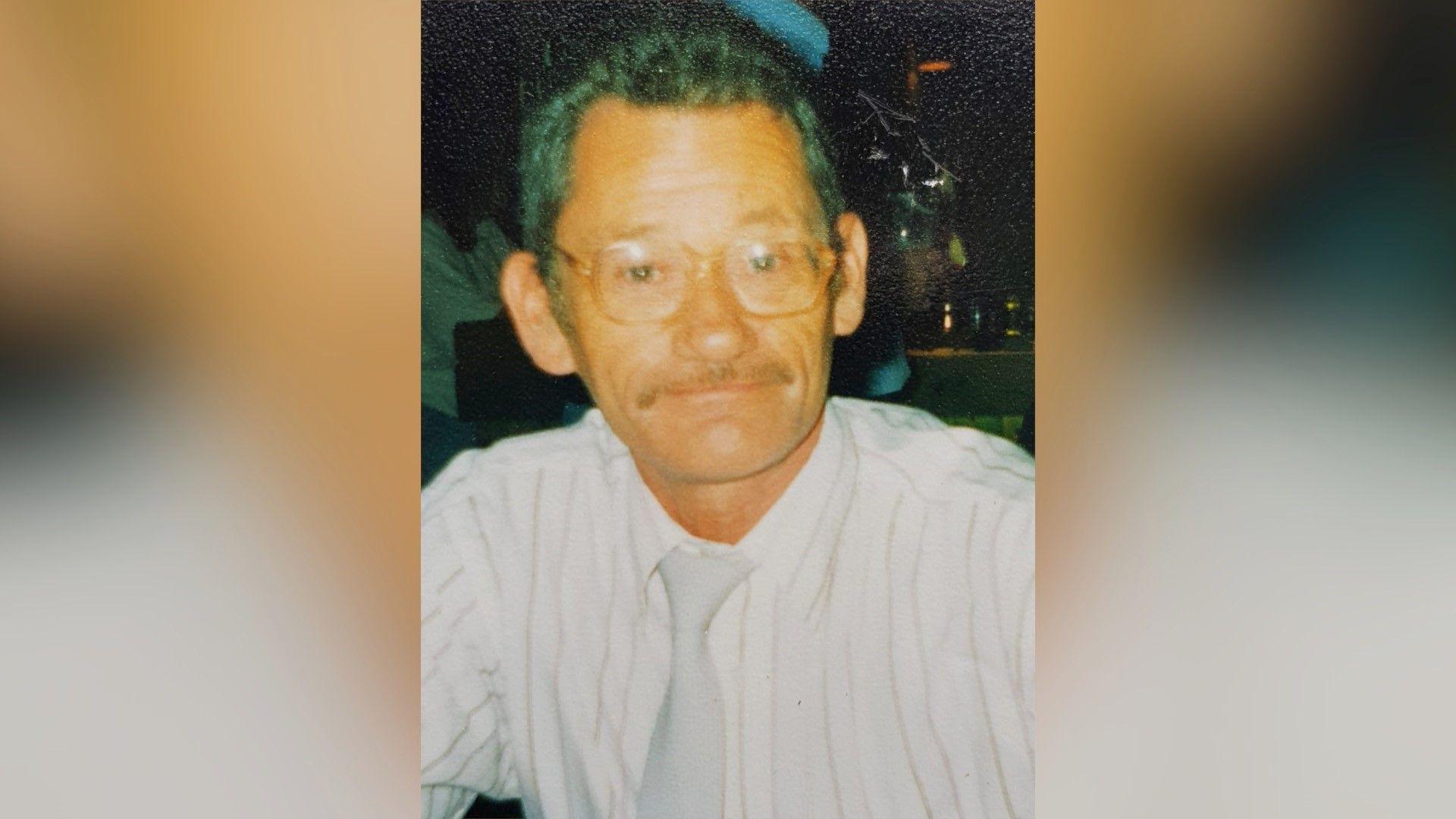
Ted Burkert was infected by blood products used to treat haemophilia
More than 30,000 people contracted HIV and hepatitis from contaminated blood or blood products in the 1970s and 80s – and 3,000 people have since died.
In May 2024, a six-year investigation by the infected blood inquiry identified a "catalogue of failures" and concluded the scandal could have been "largely avoided".
The government launched a compensation scheme for victims and families in the wake of the report - but there has been growing criticism about how it works.
Ms Burkert, who now lives near Halifax, said she was "elated" when the public inquiry published its report but now feels "frustrated, angry and in the dark."
"Compensation is really, really important," she said.
"We can put it to bed after this, we can grieve properly, like we should have done years ago.
"We can look at his photograph, we can go and visit his grave, and we can feel like we've got the justice for him," she said.
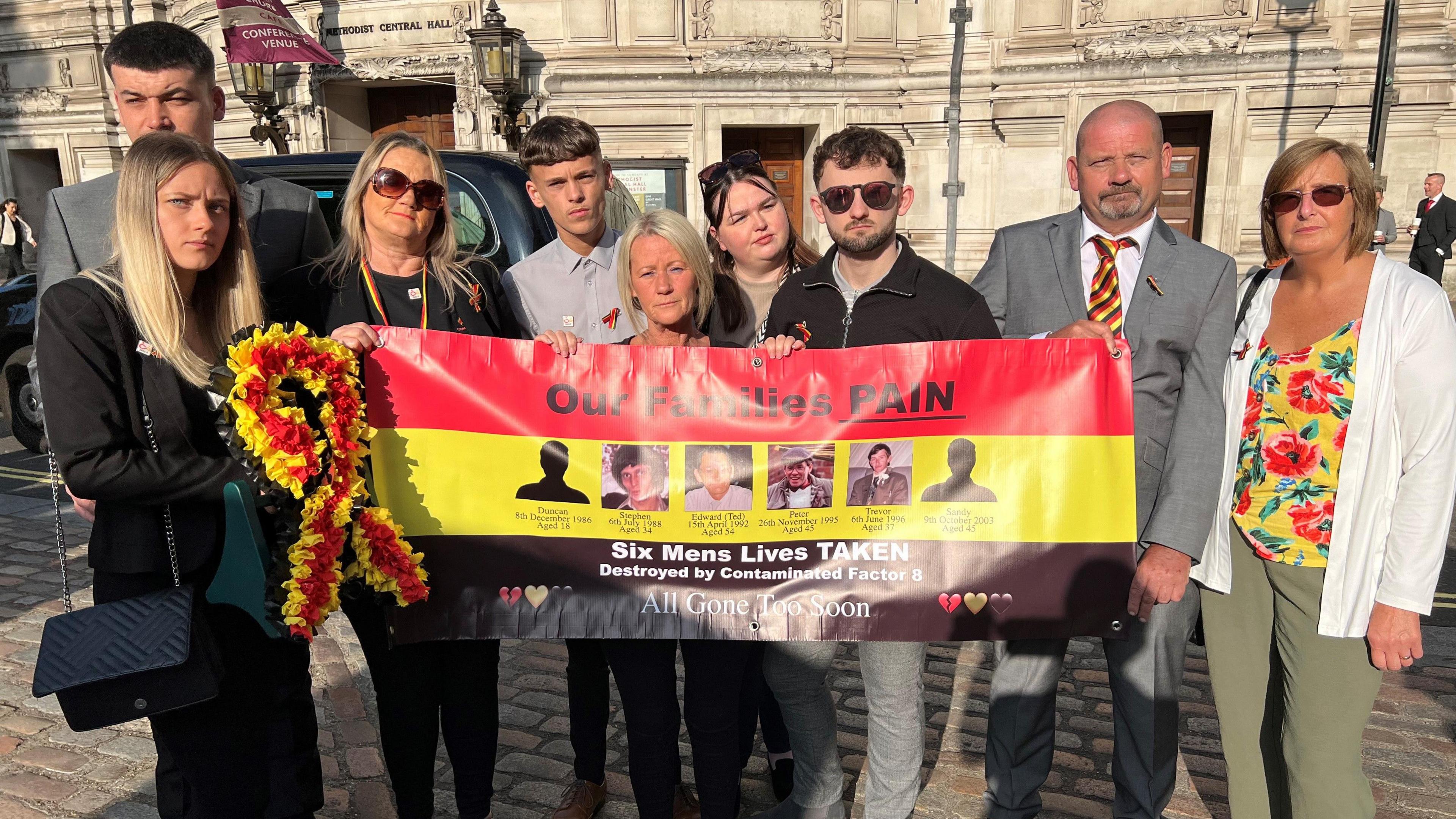
Eileen Burkert said the elation she felt at the final report had turned to anger
Figures released by the IBCA in April 2025 show 475 people have been invited to make a claim, while 137 offers of compensation, worth more than £130m, have been made.
So far, 77 payments have been made to claimants totalling £78.4m.
On its website, external, the arms-length body has stated that by "starting small" it can improve and grow the service, so it can be opened to "more and more people".
Ms Burkert said it felt like there was "no end to it" and her family "just want it over".
"Yes, with the final report there was a conclusion, but now with the compensation, nothing's happening," she said.
The infected blood inquiry has been reconvened on 7-8 May and will hear evidence on a range of issues, including the time it is taking to process claims and how much involvement those affected by the scandal had in the design of the scheme.
The inquiry findings will be published at a later date.
Kate Burt, chief executive of The Haemophilia Society, said: "The government's refusal to listen to the infected blood community, and those with specialist experience of their care, has resulted in a flawed compensation scheme, which has failed to win the trust of many people at the heart of this scandal."
An IBCA spokesperson said: "We have learned from every claim we have supported since we started to open our service in October 2024.
"Now we are using everything we have learned to increase the number of claims each week.
"As we continue to pay compensation to those who are infected and registered with a support scheme, we are also expanding our team of trained claim managers. This means we can make more payments and make them faster.
"At the end of April, we opened our service to 200 more people and from 5 May we will open our service to another 200 people.
"From then on, we will ask for an average of 100 people to start their claims each and every week."
Related topics
- Published9 April
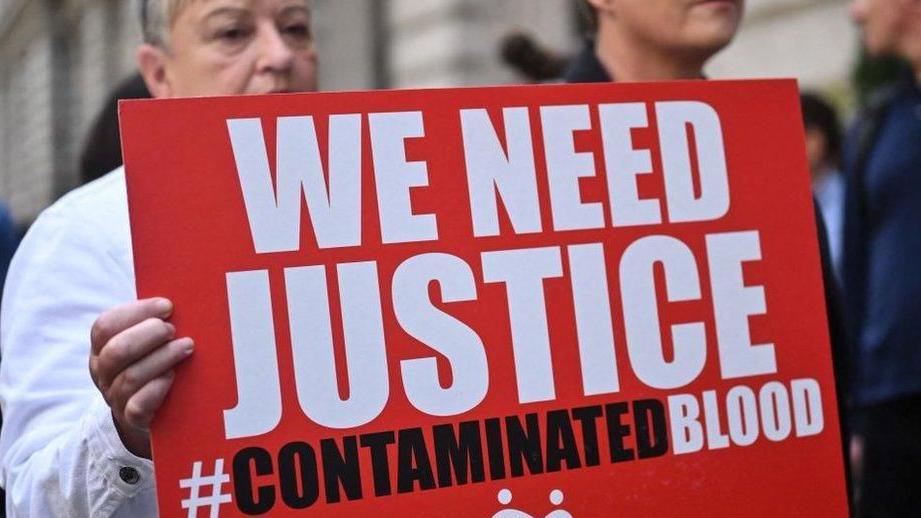
- Published20 May 2024
